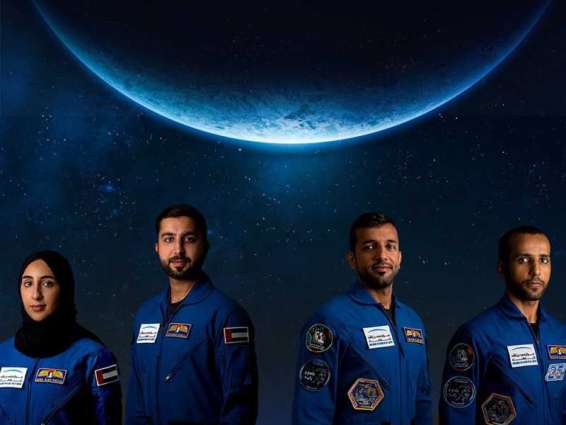ABU DHABI, (Pakistan Point News - 03rd Sep, 2023) The UAE Astronaut Programme is embarking on a new journey of achievements with the return of astronaut Sultan Al Neyadi from the International Space Station (ISS), following the successful completion of the longest space mission in Arab history, which lasted 6 months.
Launched in 2017, the UAE Astronaut Programme prepares Emirati astronauts for manned missions to the ISS and other destinations in space. The first of its kind in the Arab world, the programme provides the necessary training, expertise, and qualification for Emirati cadres to represent the UAE, and the Arab world, in future space missions and to conduct scientific experiments that support the global space exploration process.
The UAE Astronaut Programme aims to develop a national scientific corps and prepare a national team of astronauts to support the UAE’s vision of a prosperous future based on knowledge and scientific research; strengthen the UAE’s position in the international space sector; and encourage and inspire young generations to excel in STEM fields.
Managed by Mohammed bin Rashid Space Centre (MBRSC) and funded by the ICT Fund of the Telecommunications and Digital Government Regulatory Authority (TDRA), the initiative aims to support research and development in the ICT sector in the UAE and promote the country’s integration on the global stage.
In 2018, astronauts Hazza Al Mansoori and Sultan Al Neyadi were selected, from a pool of 4,000 applicants who applied to the UAE Astronaut Programme, to form the first batch of the programme. On 25th September 2019, Hazza Al Mansoori, the first Emirati astronaut, and Sultan Al Neyadi, as a reserve astronaut for Al Mansoori, UAE’s first scientific mission to the International Space Station (ISS). The mission carried the slogan ‘Zayed’s Ambition’, making the UAE the 19th country worldwide, and the first country in the Arab region, to travel to the ISS.
In preparation for the mission to the ISS, Al Mansoori and Al Neyadi underwent training exercises specifically designed to suit the requirements and duration of the mission, starting their journey at the Yuri Gagarin Cosmonaut Training Centre at Star City in Moscow, based on an agreement with Roscosmos. They also received training in Houston in Texas, and Cologne in Germany, as part of partnership agreements with major space agencies, including NASA, ESA, and JAXA.
The training programme for the ISS mission included comprehensive training on all sections and units of the ISS and how to use its devices and equipment, emergency fire drills, dealing with low pressure and ammonia leaks inside the station, in addition to survival training if the capsule had to land in a cold forest. The astronauts also trained on the spacesuit, weighing up to 10 kg, and how to wear it at zero gravity. The astronauts underwent more than 90 courses, with the total number of training hours exceeding 1,400 hours.
Al Mansoori conducted 31 scientific experiments, out of which 16 were held in cooperation with international space agencies, including Roscosmos, NASA, the European Space Agency (ESA), and the Japan Aerospace Exploration Agency (JAXA). 15 of these experiments involved schools in the UAE as part of MBRSC’s Science in Space initiative.
With the success of Al Neyadi’s mission, the Programme will begin a new phase of preparations for future space missions whose purpose is to advance scientific research, fulfilling its role in supporting global space exploration efforts for the good of humanity.




